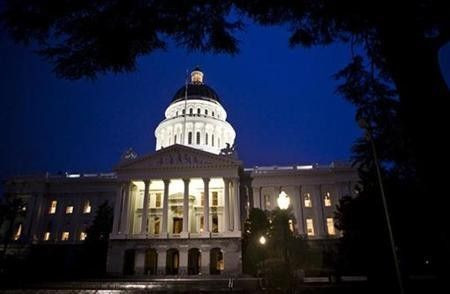2012 - New Year, New State Laws

With the champagne cork popped and the confetti dropped, thousands of new state laws will start going into effect around the country early in the new year.
In 2011, about 40,000 new laws were signed that will affect how Americans vote, what students will learn in public schools and immigration policy, among other areas, according to the National Conference of State Legislatures.
Among the more controversial laws going into effect in 2012 are voter I.D. laws. These laws, supported by Republicans and denounced by most Democrats, require registered residents identification -- some states will require photo identification -- in order to vote. States with new voter I.D. laws include Kansas, Rhode Island, Texas and Tennessee.
Meanwhile, California loosened its voter regulations with a law allowing citizens to register and vote on Election Day.
New laws in four southern states will affect how businesses hire. Louisiana, Tennessee, South Carolina and Georgia enacted laws requiring employers to use the federal E-Verify program to determine if prospective employees are eligible to work in the U.S.
California passed its own E-Verify law, but one that will prohibit employers from using the program unless required by federal law or as a condition to receiving federal funds. Currently, E-Verify is voluntary, but a U.S. Supreme Court ruling paved the way for states to force businesses to use the program.
Same-sex couples in Delaware and Hawaii will soon be able to enter into a civil union that grants them the same rights and benefits of married couples, though stopping just short of changing state marriage laws.
A slew of laws will also impact consumers in California next year. The production and sale of Four Loko-style drinks -- malt liquor with caffeine added -- will be banned. The state has also banned the sale of synthetic marijuana, commonly called K2 or spice. Minors will also need a prescription to buy any product with DXM, an ingredient in cough suppressants, which can be taken as a cheap recreational drug.
Laws aimed at preventing distracted driving will go into effect amid calls from the National Transportation Safety Board to ban all cellphone use while driving. Nevada and North Dakota will prohibit all drivers from text messaging, while North Dakota will also prohibit cell phone use among drivers under the age of 18.
--
© Copyright IBTimes 2024. All rights reserved.





















